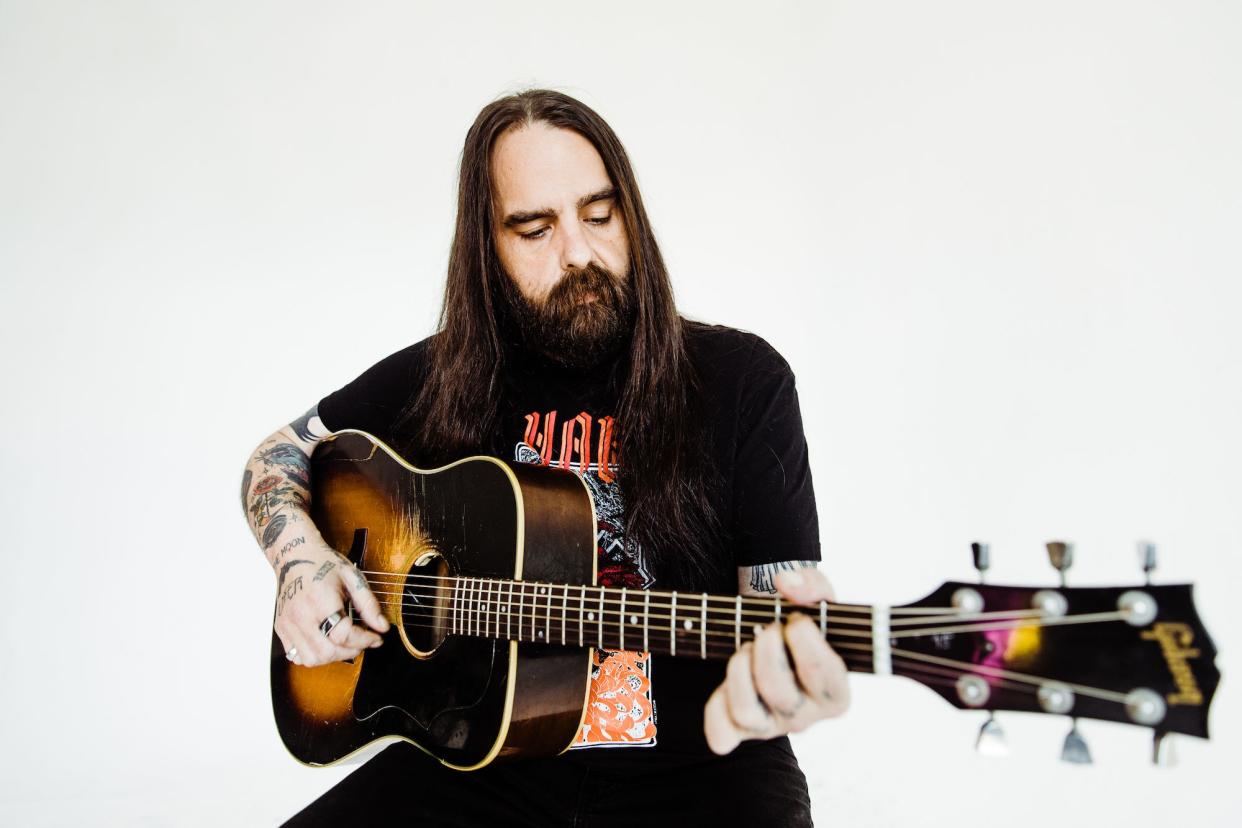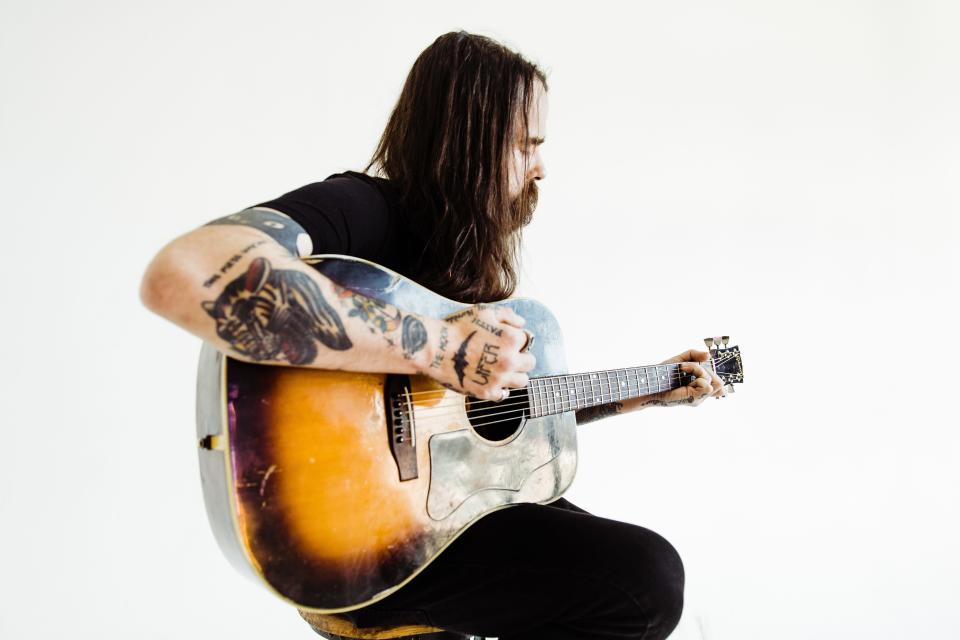Arlo McKinley turns a month marked by loss into a powerful new album

His manager told him he could cancel the tour. Arlo McKinley didn’t want to.
It was March 2020, and the Cincinnati-based singer-songwriter had just lost his mother and one of his closest friends. But after holding services for his mom and making sure his dad was going to be all right, McKinley still aimed to “get out there and get my mind off things.”
Within a few days, the pandemic made it clear that wasn’t going to be an option. It was the final straw for what the 42-year-old calls “probably the worst month of my life.”
“Going through that stuff with nothing to do – you're kind of forced to sit and think about it,” he says. “So I tried to make the best out of it and just make this record.”
It’s been nearly a year since McKinley wrapped up work on that album, aptly titled “This Mess We’re In.” It finally arrives Friday via Oh Boy Records, the independent label owned by late songwriting legend John Prine. McKinley was the last artist signed to Oh Boy before Prine’s death in April 2020. McKinley released his first album for the label, “Die Midwestern,” later that year.

Even without the road, his songs – unflinching, acoustic-driven snapshots of addiction, dread and heartbreak – found a passionate audience. On YouTube, live versions of “Bag of Pills” and “The Hurtin’s Done” have racked up millions of views. (“My therapist’s name is Arlo McKinley,” reads one fan comment.)
10 Nashville concerts in July: Kendrick Lamar, Brandi Carlile and more
Those songs established McKinley as an artist willing and able to dive headfirst into hurt and emerge with something empowering. But he’s had a slightly different aim on “This Mess We’re In.”
"With 'Die Midwestern,' I was trying to figure out what was wrong," he says. "Now, I think it's knowing what's wrong, and what I'm going to do with the things that I know are in front of me that need to change. So (it's) a little more aware, I think.”
“Boy, you’re running out of chances,” he sings on “City Lights,” pairing his baritone drawl with a steady strumming groove, saloon piano and lonesome organ.
“I don’t have much more to give/ It’s up to you/ What you say and what you do/ How you’re gonna be/ How you’re gonna live.”
As McKinley demoed its songs at home with an acoustic guitar, he also had to decide how to build the studio versions from the ground up with producer Matt Ross-Spang – whom McKinley says should have his name next to his on the album.
One of the first things McKinley said upon entering the studio: “'I just really don't want to make a straight country record.” “Mess” skews toward Southern soul, but the artist’s country, rock and folk influences remain at its core.
Jeverson: Soul-pop singer travels from the shores of Grenada to Nashville's Lower Broadway
Though he’s not sure it will mean as much to his listeners, McKinley says the dreamy and desolate “Stealing Dark From the Night Sky” “helped me out in ways I didn't know something that I would write could.”
“I’ve been running on empty, like the ones here before me,” he belts over acoustic guitar, floor tom and electric piano. “And all this hurt our hearts are hauling/ Hurts a little less each day.”
But with the album closer, the Southern-rock waltz “Here’s to the Dying,” McKinley turns a personal, devastating moment into universal one – offering a musical toast to “our mothers” and “our fathers ... trying to get by without their best friend and the love of their life.”
“I never understood that kind of loss. I've lost friends and people who were really close to me. But I mean, my mom was like my best friend and biggest fan. ... It's just a song for everyone we've lost here in the last little bit, which is far too many, it seems.”
Another heartbreaking standout is the dire country ballad “Back Home,” in which McKinley proclaims, “Don’t think I’m ever gonna make it back home.”

It’s a relief, then, to find out that’s an oldie in McKinley’s catalog. He wrote it roughly a decade ago, back when he was piecing songs together while working as a delivery driver.
“I'm a take it day-by-day kind of person," he says. "I'm definitely in a better spot than I was when I wrote that song. I think I'm learning as I go. I'll be 43 this year, and I think I'm still getting a little smarter. It's never too late to learn – while I make mistakes along the way.”
This article originally appeared on Nashville Tennessean: Arlo McKinley turns his 'worst month' into a powerful new album